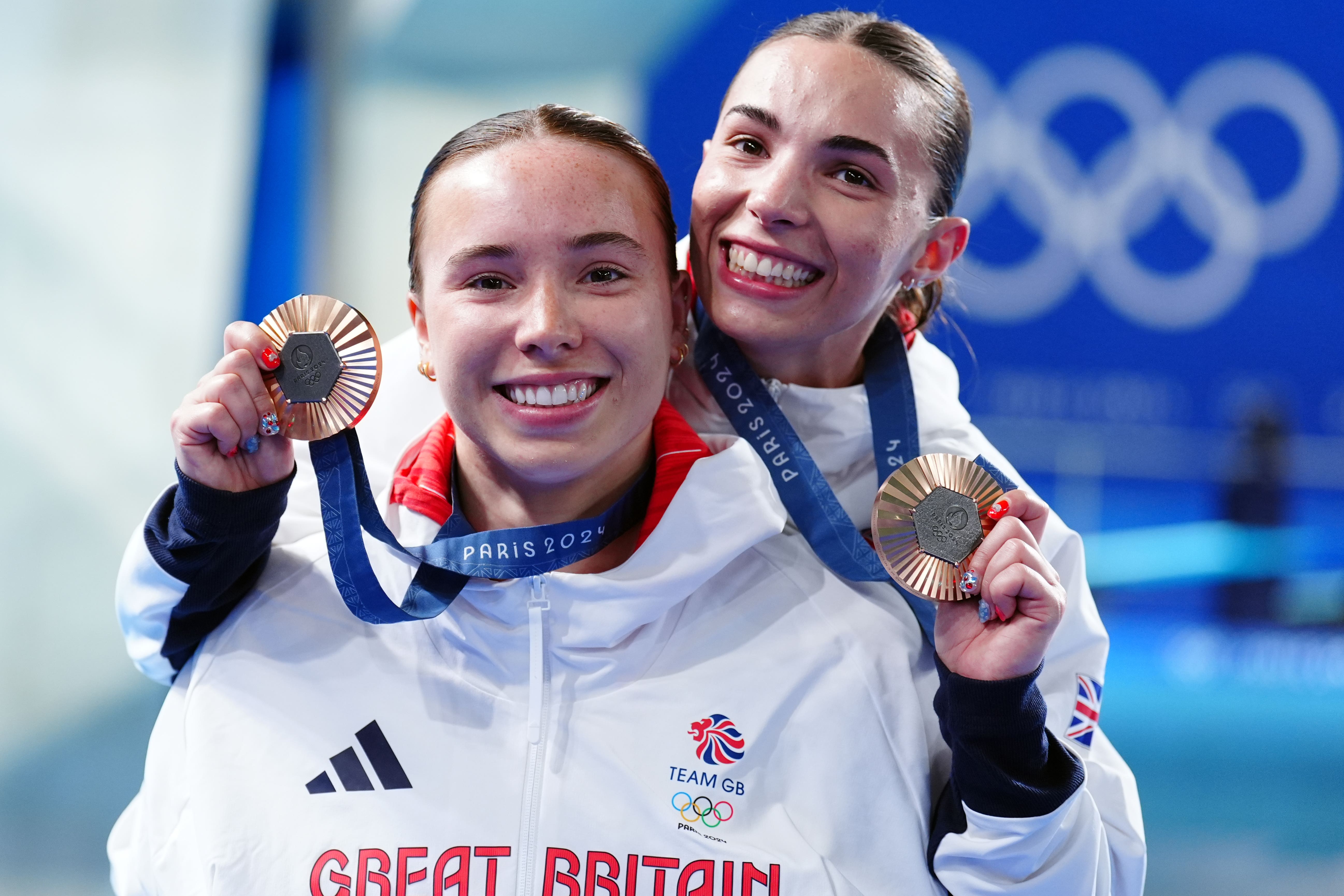The BBC’s Olympic coverage is woeful – the nation deserves better
With its lacklustre talking heads, truncated footage, and airing events two hours after they take place, the public broadcaster has let us all down with this tepid attempt to bring us the Games, writes Will Gore


What are the sporting events you remember? The World Cup win in 1966 for those of a certain age; certainly the Lionesses bringing football home in 2022. Or how about that glorious Ashes victory in 2005, when Freddie and KP put the Aussies to the sword?
And who could forget those golden times at the London Olympics in 2012: Andy Murray, Nicola Adams, Bradley Wiggins, to name a few; and the particular wondrousness of “Super Saturday”, with Mo Farah, Greg Rutherford and Jessica Ennis-Hill all victorious within a single, blistering hour.
You might have been lucky enough to witness one or more of those occasions in person, roaring on England or Team GB among the throng at Wembley, or the Oval, or the Olympic (now London) Stadium. But for the tens of millions not able to witness such victories in the flesh, they have nonetheless left an imprint thanks to the wonders of television.
National sporting success can bring the country together – we revel not only in the sport, but in the sense of all being connected by the effort and the outcome; we become the victory, whether we’re in the stadium or watching from our sofas.
And yet increasingly it feels as if those moments of shared joy are being denied, thanks to the exploitation of sports broadcast rights – and the unwillingness (or inability) of our public service broadcasters to compete to show the big events as fully as they should.
I’ve spent the last week in France, watching on as the lead-in to this summer’s Paris Olympic Games became ever more mired in controversy and sabotage. But the flotilla of athletes along the Seine, and the heart-fluttering appearance of Celine Dion on the Eiffel Tower reminded me of why the Olympics, perhaps more than any other sporting event, has the power to capture the world’s attention, and to draw us in emotionally.
“I can’t wait to watch it on TV when we get home,” said my sports-mad son. Ah…
Because, of course, it’s no longer that simple. Not like it was in 2012, when the BBC covered a home Games so completely, and so perfectly, that it seemed as if the ideal televisual model for such things had been realised. At the time, the BBC could boast of offering 2,500 hours of live coverage across the network, including a choice of 24 simultaneous live streams from different events. Pity those strange people who don’t like sport, you might think: but they get Homes Under the Hammer ad nauseam for the rest of the year.
Twelve years on from London 2012, the corporation boasts of just 250 hours of live coverage on BBC One and Two, plus a curated live stream on the iPlayer, highlights packages, online clips and radio coverage on 5 Live. Some of the action will appear on the TV after it’s happened, meaning that if you’re on social media, you’ll probably find out the result before you see it on the box. And yes, we all like a little bit of studio chit-chat from expert talking heads, but it’s the sport we actually want to see.
Ultimately, it feels like we’re being short-changed: our hoped-for patriotic moment in the sun, lost in a fog of commercialisation, just as it was for the Tokyo Games held in 2021. The International Olympic Committee should certainly take some heat for ratcheting up the fees it demands for the right to show the Games: £920m was the price paid by Discovery for the current European deal.
But what about the Beeb itself? Without question, it has faced financial challenges in recent times, made more potent by a government that regarded it with suspicion, if not outright hostility. And it will argue that it got the best it could from its sub-licensing agreement with Discovery.
However, when it comes to deciding how to spend the licence fee, nationally important sporting events ought to be in the top priority bracket for the BBC. After all, it’s perfectly apparent that once free-to-air coverage is reduced, or lost, the chances of getting it back are slim to say the least – just look at how little live cricket you can now watch for free on TV compared to 20 years ago. Much better to throw as much cash as is necessary to secure proper coverage; to unite the nation in the kind of patriotic, sporting fervour that can only be enabled by free-to-air telly showing the action live, and in full.
Where to find that cash? Well, perhaps there is some wiggle room over presenter salaries (Independent readers might agree). And are the costs of the increasingly controversial Strictly Come Dancing really worth the hassle? As for a Doctor Who spin-off, surely the money would be better spent showing the decathlon from start to finish.
The Olympics come around once every four years and remains among the list of sporting “crown jewels” that are apparently protected against the rapacious whims of paid-for television services. But at the moment, it feels less like our crown jewels are being cared for, than being given a kicking.






Join our commenting forum
Join thought-provoking conversations, follow other Independent readers and see their replies
Comments